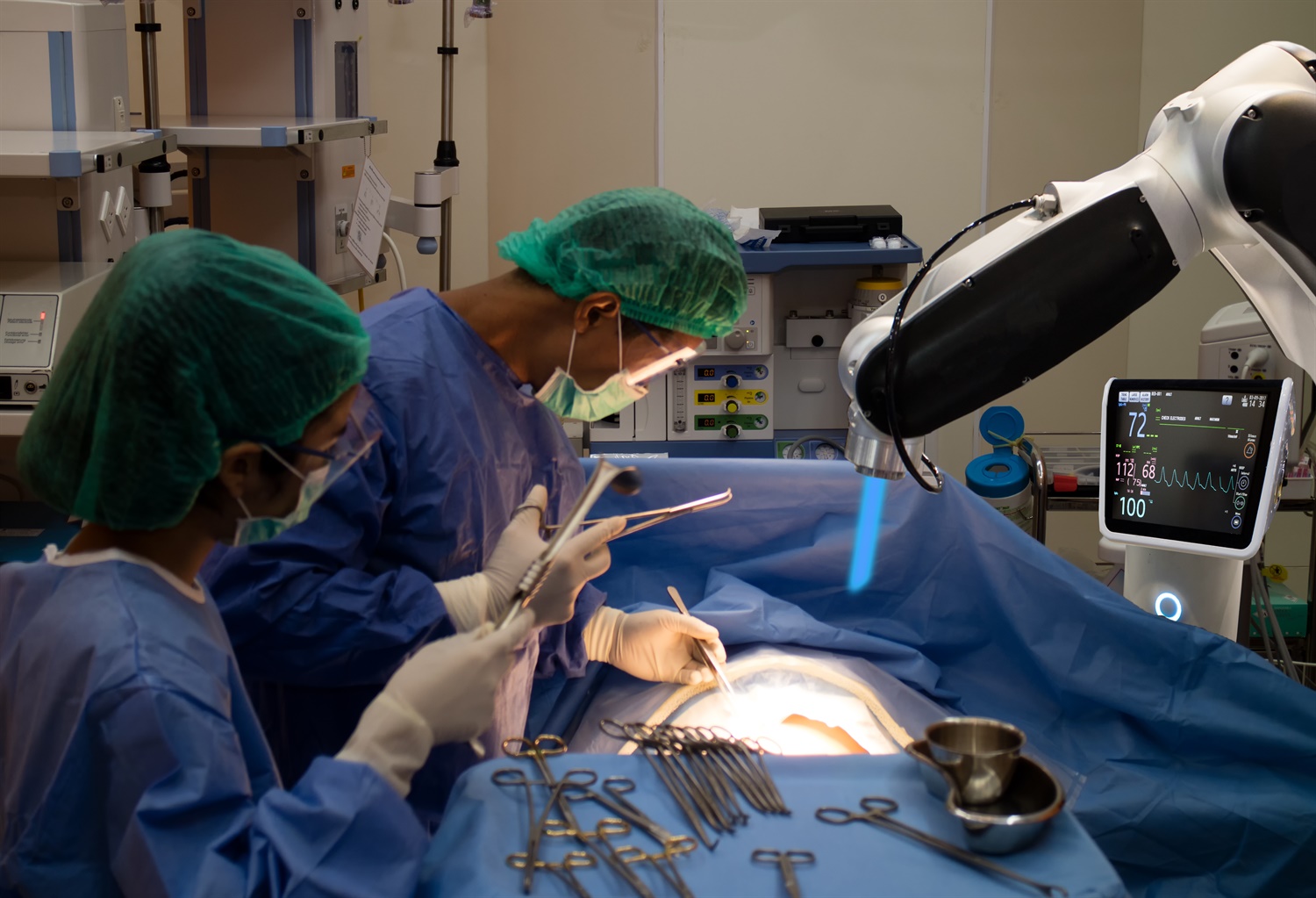24.01.18
Robots, AI and 3D printing: the future of surgery?
Source: NHE Jan/Feb 18
Richard Kerr, Royal College of Surgeons (RCS) council member & chair of the Commission on the Future of Surgery, looks into how technological advancements could transform the surgical profession in the years to come.
Surgeons have always been at the forefront of medical advances. As a result of this, and by working with colleagues from other disciplines, we have witnessed almost unimaginable advances in the way we care for our patients.
We have raced from performing the first open-heart surgery to repair a ‘hole’ in a baby’s heart using hypothermia in 1950, to introducing minimally invasive keyhole surgery in the 1990s, to French surgeons performing the world’s first face transplant in 2005. In recent months we have seen huge advances in image-guided surgery with interactive real-time analysis during tumour resection.
As with all of science and medicine, these sorts of advances seem to be happening at an increasing rate, and as a surgeon, I get the sense that we’re standing on the edge of something quite transformative. That said, we must tread thoughtfully and cautiously into this brave new world, carefully considering the implications for patients with all the changes that are likely to come over the next 20 years.
The public ‒ and even healthcare professionals ‒ are being sold a Hollywood sci-fi blockbuster vision of the future of medicine, and a lot of it has the potential to become a reality. But what will all of this really mean for patients and the team of professionals who treat them? How do we separate fact from fiction and ensure that those advances with the most potential are allowed to progress to the benefit of patients?
It is to answer these and other questions that the RCS has launched an independent commission to explore the future of surgical care over the next 20 years. A panel of experts will identify and explore the innovations that will most likely affect surgical treatment over this period of time.

Advances will likely include a shift from open surgery to single or even no-incision operations, autonomous robots that work in synergy with the surgeon, and exploring how 3D-printed or lab-grown organs might help solve the issue of organ shortages.
Developments in artificial intelligence and machine learning suggest a future where surgeons and machines will operate in closer synergy, one making up for the weaknesses of the other. Discoveries in genetics point the way towards preventive strategies and patient-targeted therapeutic interventions, with fundamental consequences for surgical decision-making and the way we treat patients.
The Commission on the Future of Surgery will explore all these potential advances. Our experts will also investigate developments in medicine and technology that may make surgery redundant, such as new pharmacological treatments, gene therapy or further developments in interventional radiology and targeted radiotherapy. This, of course, has to be done taking into account the predicted demographic changes and the evolving burden of disease that will impact surgical care delivery.
It feels very apt that we are exploring future surgical treatment in the year the NHS celebrates its 70th anniversary. New technologies, especially those that advance quickly, will mean the NHS will have to adapt as well. NHS and healthcare leaders will need to consider issues like the choices of treatment that will be available to patients; what the role of the surgeons and members of the surgical team will be in the future, and how they will be trained; where ethical lines will be drawn; and especially what is safe for patients.
It is without a doubt a very exciting time for medicine as a whole, for surgery and technology. The RCS wants to make sure that both surgery as a profession and the healthcare system are ready for the advances coming our way. Central to all of this will be the patient and how these changes will affect the quality of care and outcomes of their surgical care.
The possibilities are endless and we are very excited to see what our evidence-gathering uncovers. For example, in the past two decades 3D printing has been introduced in surgical education and training. 3D-printed models have been used to teach anatomy in place of cadavers, with much better feedback than teaching through two-dimensional medical images and anatomical atlases.
In the UK, the Centre for Applied Reconstructive Technologies in Surgery (CARTIS) has been one of the leading innovators in applying 3D printing technology to reconstructive surgery and prosthetic rehabilitation. CARTIS made the headlines in 2014, when a patient whose face had been severely damaged in a motorcycle accident received titanium facial implants in an operation to rebuild his damaged face.
FOR MORE INFORMATION
W: www.rcseng.ac.uk